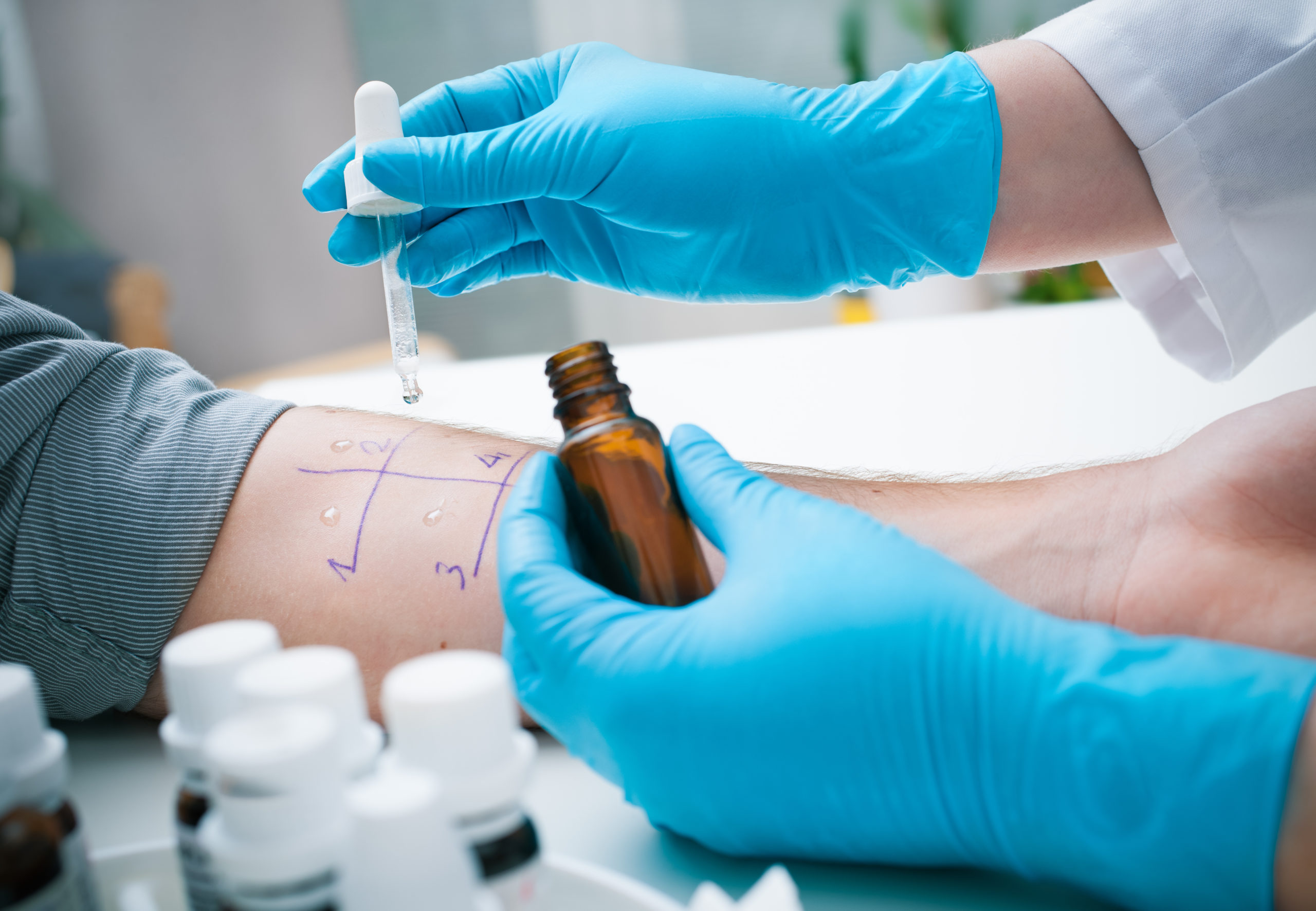
What Is Allergy Testing?
Allergy testing reveals your level of sensitivity to many allergens, including foods and environmental substances. Allergic reactions or sensitivities can be life-threatening, so for those individuals who have a severe reaction to one or more substances, allergy testing can save their lives. Allergy testing is often performed as an adjunct to an overall treatment plan that will improve an individual’s health and quality of life. Conditions and substances frequently included in the test include:
- Allergic asthma
- Allergic dermatitis
- Allergic rhinitis
- Bee venom
- Common food substances
- Penicillin
What’s The Procedure For Allergy Testing?
Usually, skin tests are performed to determine the sensitivity to the substances, and skin tests are usually safe for adults, infants, and children. They take between 20 to 40 minutes and are administered by a nurse. Your doctor will interpret the results. A skin prick test provides results immediately and can test as many as 50 different substances simultaneously. It’s most commonly used for dust mites, foods, mold, pet dander, and pollen. Adults are tested on the forearm, but children are usually tested on the back. The tests aren’t painful, and you won’t feel more than mild, fleeting discomfort. In about 15 minutes, you may develop bumps, and the nurse will measure and record the size of the bump.
A skin injection test is sometimes used for penicillin or insect venom, and a patch test is used to determine a delayed reaction. The patch is usually worn for 48 hours and patients are advised to avoid bathing or perspiring heavily during this time.
However, there are circumstances under which skin tests are contraindicated, such as:
- A history of anaphylaxis, which is an allergic reaction so severe that it can be fatal.
- Use of medications that could alter the outcome of the test, such as antidepressants, antihistamines, and some antacids. Depending on the medication and the reason for using it, the doctor may determine that it’s better to continue with the medication than to risk complications from a skin test.
- Skin testing is usually performed on the back and arms, so if you have severe psoriasis or eczema in those areas, there may not be enough clear skin for the tests to be performed.
Are There Alternatives To Skin Testing?
If you’re unable to have skin testing, then blood tests can help determine some sensitivities or allergies. However, blood tests aren’t effective for a penicillin allergy and they cannot pinpoint specific food allergies. For a full panel, it is advised to do skin testing.
What Are The Risks Of Skin Testing?
Although rare, skin tests can cause an immediate and severe allergic reaction, depending on the individual sensitivity to the substance being tested. For this reason, it’s important to have skin testing performed at a reputable medical facility, such as WellCare Urgent Care in Grand Rapids. Some people develop red itchy bumps known as wheals, but these seldom last for more than a couple of days. Usually, the bumps occur immediately, but sometimes, it may be several hours after the test.
Is There Any Type Of Preparation Needed?
Your doctor will assess your medical history as well as your signs and symptoms before determining that skin tests are necessary. Family history is important because some types of allergies are more common in some families. You may also need to have a physical exam before skin testing to ensure that there are no other causes for your physical symptoms.
When you come to the office for your consultation, be sure to bring a list of all medication that you take, including over-the-counter medications, vitamins, minerals, and supplements. Depending on the medications you take, you may need to discontinue their use for up to 10 days before your test. During your consultation, be sure to tell the doctor if you take:
- Prescription or over-the-counter antihistamines
- Antidepressants
- Asthma medication
- Heartburn medications
When Will I Know The Results?
You’ll have the results of your tests before you leave our office unless you have a patch test. A positive reaction indicates a sensitivity to a substance and the bigger the weal, the greater the sensitivity. Although skin tests can sometimes return a false-positive or a false-negative, they’re helpful aids in determining a course of treatment for you.
Schedule an Appointment
To get started on your allergy testing today, schedule an appointment or walk right in to our office just off 28th Street! We have staff on hand ready to assist you.



